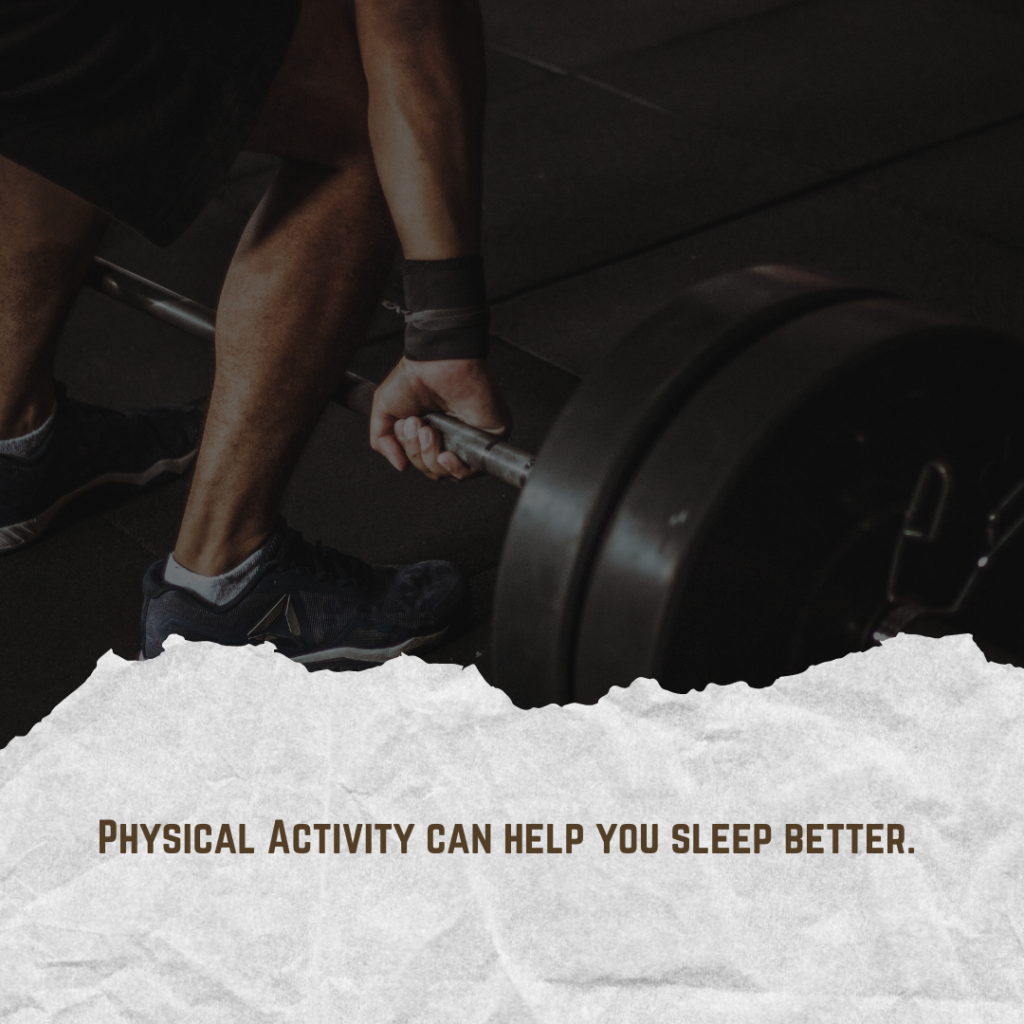Getting a good night sleep is essential for our physical and mental health. Unfortunately, many of us don’t get the recommended 7-8 hours of sleep per night. In this blog post, we will discuss some tips for getting a good night’s sleep.
“A good night sleep is like a mini-vacation.” – Cathy Lazere

Stick to a sleep schedule. Go to bed and wake up at the same time each day, even on weekends, holidays, and days off. Being consistent reinforces your body’s sleep-wake cycle. It may be hard at first to create that routine, but your body will thank you for you the consistency of your scheduled sleep!
Create a relaxing bedtime routine. Take a warm bath, read a book, or do some light stretching in the hour before bed. Avoid stressful, stimulating activities such as work, exercise, or watching TV. Turn off electronics within 2 hours before bed, this way your brain can slow down and unwind! If you need to- grab a cup of sleepy tea!


My favorite thing: Make sure your bedroom is quiet, dark, and cool. Exposure to light might make it harder to fall asleep. Avoid prolonged use of light-emitting screens just before bedtime. Maybe a sound machine or diffuser is what your body needs for relaxation?!
Limit caffeine and alcohol before bed. The stimulating effects of caffeine can take hours to wear off and can disrupt your sleep. And even though alcohol might make you feel sleepy, it can disrupt sleep later in the night. I know caffeine is some of y’alls lifeline, but we have to make sure we stop drinking it midday! That can cause more defaults than benefits in the long run for your day!


Get regular physical activity. Physical activity can promote better sleep. Keeping your heart healthy can help your body be the best functioning throughout the day which in turn will promote an exhausted brain. Avoid being active too close to bedtime, however.
Join me for a fun support group to get you active and committed to a good night sleep!
Getting enough sleep is essential for your physical and mental health. It can help you maintain a healthy weight, improve your mood, and boost your immune system. It can also help you perform better at work and school. If you’re not getting enough sleep, there are a number of things you can do to improve your sleep habits. Make sure to establish a regular sleep schedule, create a relaxing bedtime routine, and avoid caffeine and alcohol before bed. If you’re still having trouble sleeping, talk to your doctor. They may be able to help you identify any underlying medical conditions that could be affecting your sleep.
Thank you for reading! I hope this blog post has been helpful. If you have any questions or comments, please feel free to leave them below.




